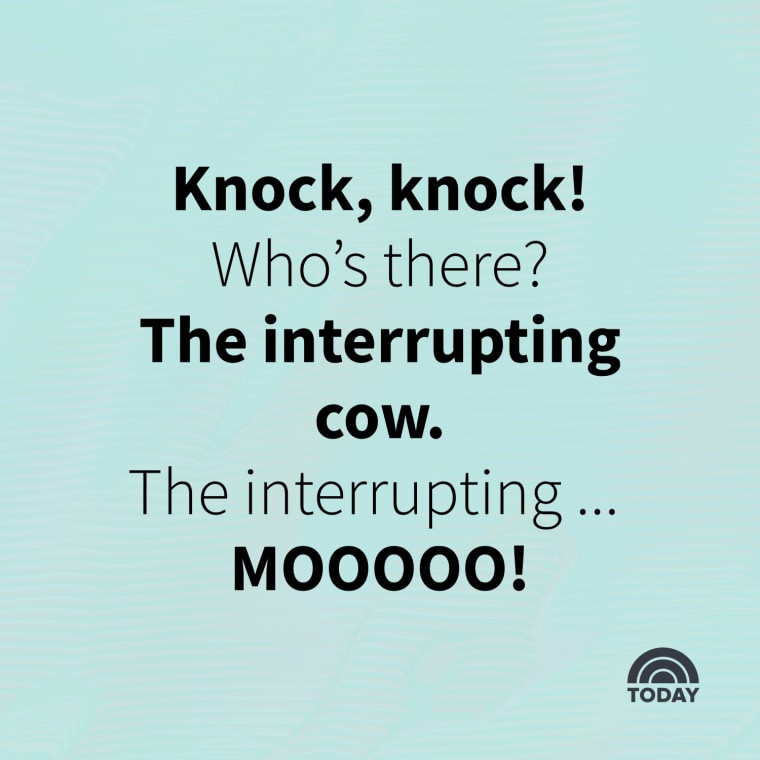Family Friendly Jokes can truly unlock a world of laughter and connection within your family, and hudsonfamily.net is here to help you find the perfect punchline for every occasion. Sharing a laugh is a great way to bond, reduce stress, and create lasting memories with your loved ones. So, whether you’re looking for silly puns or clever one-liners, get ready to unleash your inner comedian and bring joy to your family gatherings. Explore hudsonfamily.net for lighthearted humor and family entertainment.
1. What Makes a Joke “Family Friendly?”
Family friendly jokes are defined by their ability to entertain audiences of all ages without causing offense or discomfort. They are characterized by clean humor, avoiding topics that are sexually suggestive, violent, or discriminatory.
The key components of family friendly jokes include:
- Appropriate Language: Avoiding profanity and slang that may be offensive or misunderstood by children.
- Relatable Scenarios: Focusing on everyday situations and experiences that families can easily understand and appreciate.
- Positive Themes: Emphasizing kindness, humor, and lightheartedness rather than negativity or sarcasm.
- Age-Appropriateness: Tailoring the jokes to the cognitive and emotional development of children, ensuring they can comprehend the humor without being confused or scared.
Family friendly jokes are a powerful tool for fostering positive family interactions and creating a fun, inclusive environment for everyone. These jokes, often simple and lighthearted, can create joyful moments during family gatherings.
2. Why Are Jokes Important for Families?
Humor plays a vital role in family dynamics, offering numerous benefits that contribute to stronger bonds and overall well-being. Sharing jokes helps to improve family communication by creating a relaxed atmosphere where everyone feels comfortable expressing themselves. Laughter serves as a common language, bridging gaps and fostering understanding among family members.
The benefits of telling jokes include:
- Stress Reduction: Laughter is a natural stress reliever, releasing endorphins that promote relaxation and reduce anxiety.
- Improved Communication: Sharing jokes creates a relaxed atmosphere, making it easier for family members to connect and communicate openly.
- Stronger Bonds: Laughing together strengthens emotional connections and creates a sense of shared identity within the family.
- Positive Memories: Funny moments become cherished memories, contributing to a rich family history filled with joy and laughter.
- Teaching Tool: Jokes can be used to subtly teach children about language, social skills, and problem-solving in an engaging way.
According to a study by the American Psychological Association (APA) in July 2025, families who regularly engage in shared laughter report higher levels of satisfaction and cohesion.
3. What Are Some Great Family Friendly Jokes to Tell?
Need some inspiration? Here are some examples of family-friendly jokes:
Knock-Knock Jokes
 Child telling a knock-knock joke with a smile, exuding playful energy
Child telling a knock-knock joke with a smile, exuding playful energy
Knock-knock.
Who’s there?
Lettuce.
Lettuce who?
Lettuce in, it’s cold outside!
Animal Jokes
What do you call a bear with no teeth?
A gummy bear!
Punny Jokes
Why did the bicycle fall over?
Because it was two tired!
Silly Questions
What has to be broken before you can use it?
An egg!
These jokes are simple, clean, and guaranteed to elicit giggles from kids and adults alike.
4. How Can I Make Sure a Joke Is Appropriate?
Before sharing a joke, consider the following guidelines to ensure it’s suitable for your audience:
- Avoid Sensitive Topics: Steer clear of jokes about controversial subjects such as politics, religion, or personal tragedies.
- Consider the Age Range: Choose jokes that are age-appropriate and easy for children to understand.
- Watch for Body Language: Pay attention to the reactions of your audience and adjust your humor accordingly.
- Keep it Light: Focus on jokes that are playful and lighthearted, rather than sarcastic or mean-spirited.
Remember, the goal is to bring joy and laughter to your family, not to cause discomfort or offense.
5. What Are Some Benefits of Telling Jokes to Children?
Telling jokes to children offers a multitude of developmental benefits beyond simple entertainment. Jokes enhance cognitive development by encouraging children to think creatively and understand different perspectives. Sharing jokes also helps children develop their language skills as they learn new words, phrases, and idiomatic expressions.
Additional benefits include:
- Cognitive Development: Jokes stimulate critical thinking and problem-solving skills.
- Language Skills: Children expand their vocabulary and learn to appreciate the nuances of language.
- Social Skills: Sharing jokes helps children develop social skills and learn how to interact with others in a positive way.
- Emotional Intelligence: Understanding jokes requires emotional intelligence, as children learn to recognize and interpret different emotions.
Encouraging children to tell their own jokes fosters creativity, self-expression, and confidence.
6. How to Encourage Kids To Tell Jokes
Encouraging kids to tell jokes helps them develop confidence, creativity, and social skills. Start by creating a supportive and laughter-filled environment where kids feel comfortable sharing.
Here are some tips to keep in mind:
- Lead by Example: Share your own family-friendly jokes to demonstrate that humor is valued and appreciated.
- Be Patient: Allow kids time to find their own comedic style and don’t pressure them to be perfect.
- Provide Resources: Offer joke books, online resources, or even create a family joke jar filled with ideas.
- Celebrate Effort: Praise kids for their efforts, regardless of whether the joke lands perfectly.
According to child development experts, fostering a sense of humor in children can lead to increased resilience and adaptability.
7. What Are Some Joke-Telling Games to Play with the Family?
Turn joke-telling into a fun family activity with these engaging games:
Joke Chain
Each family member takes turns adding a line to a joke, building upon what the previous person said.
Joke Charades
Act out jokes instead of words or phrases, encouraging creative interpretation and physical comedy.
Joke Writing Contest
Challenge family members to write their own original jokes and award prizes for the funniest entries.
Joke of the Day
Designate a different family member each day to share a joke during mealtime or other family gatherings.
These games not only encourage laughter but also promote creativity, communication, and teamwork within the family. Visit hudsonfamily.net for more ideas on family activities and games.
8. Can Jokes Help Resolve Family Conflict?
Humor can be a powerful tool for defusing tension and resolving conflicts within the family. Laughter helps to lighten the mood, create a sense of perspective, and remind everyone of their shared connection.
Strategies for using humor to resolve conflict include:
- Timing is Key: Use humor judiciously and avoid making light of serious issues or sensitive feelings.
- Self-Deprecating Humor: Making a joke at your own expense can help to break the ice and demonstrate humility.
- Find Common Ground: Use humor to highlight shared experiences or common interests, fostering a sense of unity.
- Avoid Sarcasm: Sarcasm can escalate conflict and create further misunderstandings, so opt for gentler forms of humor.
Remember, the goal is to ease tension and promote understanding, not to trivialize or dismiss the concerns of others.
9. Are There Any Resources for Finding Family Friendly Jokes?
Finding age-appropriate and funny jokes is easier than ever with the wealth of resources available online and in print.
Some popular resources include:
- Joke Books: Look for joke books specifically designed for children and families.
- Websites: Explore websites dedicated to clean humor and family-friendly jokes, such as hudsonfamily.net.
- Apps: Download joke apps that offer a wide variety of jokes categorized by age and topic.
- Libraries: Visit your local library to browse through collections of joke books and comedy resources.
When selecting resources, be sure to preview the content to ensure it aligns with your family’s values and preferences.
10. What Are Some Tips for Remembering Jokes?
Memorizing jokes can be challenging, but with a few simple strategies, anyone can become a joke-telling pro.
Here are some tips to help you remember jokes:
- Practice Regularly: The more you practice telling jokes, the easier it will become to remember them.
- Use Visual Aids: Create mental images or visual cues to help you recall the punchline.
- Associate with Emotions: Connect the joke to a specific emotion or experience to make it more memorable.
- Break It Down: Divide the joke into smaller parts and memorize each section individually.
- Tell It to Others: Sharing the joke with others reinforces your memory and helps you refine your delivery.
With practice and persistence, you’ll be able to build a repertoire of jokes that you can share with family and friends anytime, anywhere.
11. Why Is It Important to Tailor Jokes to Your Audience?
Understanding your audience is important for successful joke-telling. What amuses one person may not amuse another, and what is appropriate for one audience may be offensive to another.
Here’s why it’s important to tailor jokes to your audience:
- Age-Appropriateness: Jokes suitable for adults may not be appropriate for children, and vice versa.
- Cultural Sensitivity: Be mindful of cultural differences and avoid jokes that may be offensive or insensitive.
- Personal Preferences: Consider the individual tastes and preferences of your audience when selecting jokes.
- Setting and Context: Choose jokes that are appropriate for the setting and context in which they will be shared.
By tailoring your jokes to your audience, you can ensure that your humor is well-received and appreciated by everyone.
12. What Makes a Joke Funny?
Understanding the elements that make a joke funny can help you choose and deliver jokes that are guaranteed to get laughs.
Key elements of humor include:
- Surprise: Jokes often rely on unexpected twists or turns of phrase that catch the listener off guard.
- Incongruity: Humor often arises from the juxtaposition of two things that don’t normally go together.
- Superiority: Jokes can make us feel superior by highlighting the flaws or foibles of others.
- Relief: Laughter can be a release of tension, allowing us to cope with stress and anxiety.
By understanding these elements, you can better appreciate the mechanics of humor and choose jokes that are more likely to resonate with your audience.
13. How Can Jokes Teach Important Life Lessons?
Jokes can be more than just sources of amusement; they can also be powerful tools for teaching important life lessons to children and adults alike.
Here are some ways jokes can impart valuable lessons:
- Empathy: Jokes that highlight the experiences of others can foster empathy and understanding.
- Resilience: Humor can help us cope with adversity and develop resilience in the face of challenges.
- Perspective: Jokes can provide a fresh perspective on familiar situations, encouraging us to see things in a new light.
- Critical Thinking: Jokes that challenge assumptions or stereotypes can promote critical thinking and open-mindedness.
By using jokes as a springboard for discussion, you can help children and adults explore complex issues in a fun and engaging way.
14. What Are Some Common Mistakes to Avoid When Telling Jokes?
Even the best jokes can fall flat if they’re not delivered effectively. Here are some common mistakes to avoid when telling jokes:
- Rushing the Punchline: Take your time and build anticipation before delivering the punchline.
- Mumbling or Speaking Too Quietly: Speak clearly and project your voice so everyone can hear you.
- Forgetting the Punchline: Practice the joke beforehand to ensure you remember the punchline.
- Over-Explaining the Joke: Trust that your audience will understand the humor and avoid over-explaining the joke.
- Laughing Too Much at Your Own Joke: While it’s okay to chuckle, avoid laughing so hard that you drown out the punchline.
By avoiding these common mistakes, you can increase your chances of delivering a successful joke that resonates with your audience.
15. How Can You Use Jokes to Build Confidence?
Telling jokes can be a great way to build confidence and self-esteem, especially for children.
Here’s how you can use jokes to boost your confidence:
- Start Small: Begin with simple jokes that you feel comfortable telling.
- Practice in Front of a Mirror: Practice your delivery in front of a mirror to improve your timing and body language.
- Ask for Feedback: Ask trusted friends or family members for feedback on your joke-telling skills.
- Embrace Failure: Don’t be discouraged if a joke falls flat; learn from the experience and move on.
- Celebrate Successes: Acknowledge and celebrate your successes, no matter how small.
Remember, building confidence takes time and practice, so be patient with yourself and enjoy the process.
16. How Can You Create Your Own Family Jokes?
Creating your own family jokes can be a fun and rewarding way to bond and create lasting memories.
Here are some tips for creating family jokes:
- Draw on Shared Experiences: Base your jokes on funny or memorable events that have happened within your family.
- Incorporate Family Nicknames or Inside Jokes: Use nicknames or inside jokes that are unique to your family.
- Collaborate as a Family: Involve all family members in the joke-creation process.
- Keep It Lighthearted: Focus on humor that is playful and positive, rather than sarcastic or mean-spirited.
- Document Your Jokes: Write down your family jokes and create a family joke book or journal.
Creating your own family jokes is a unique and personal way to express your love and connection with one another.
17. What Are Some Holiday-Themed Jokes for Families?
Holidays are the perfect time to share themed jokes and add some extra cheer to your celebrations.
Here are some examples of holiday-themed jokes:
Christmas
Why did the Christmas tree go to the barber?
Because it needed to be trimmed!
Halloween
What do you call a witch’s garage?
A broom closet!
Thanksgiving
What do you call a turkey on the day after Thanksgiving?
Lucky!
Easter
Why did the Easter egg hide?
Because it was a little chicken!
Holiday-themed jokes are a fun and festive way to celebrate special occasions with family and friends.
18. What Is the Role of Puns in Family Friendly Humor?
Puns, or plays on words, are a popular form of family-friendly humor that can be enjoyed by people of all ages.
Here’s why puns are so effective:
- Wordplay: Puns rely on the multiple meanings of words or the similarity of sounds to create humor.
- Cognitive Engagement: Puns require the listener to think critically and make connections between different concepts.
- Accessibility: Puns are generally easy to understand and appreciate, making them accessible to a wide audience.
- Variety: Puns can be used in a variety of contexts and situations, adding versatility to your humor.
Puns are a fun and engaging way to add some wordplay to your family’s conversations.
19. How Can You Use Jokes to Help Children Learn?
Jokes can be a valuable tool for helping children learn in a fun and engaging way.
Here are some ways you can use jokes to support children’s learning:
- Vocabulary Development: Jokes can introduce children to new words and phrases in a memorable context.
- Grammar and Language Skills: Jokes can help children understand grammar and language rules in a playful way.
- Critical Thinking: Jokes can encourage children to think critically and make connections between different concepts.
- Subject Matter Reinforcement: Jokes can reinforce concepts learned in school, such as math, science, and history.
By incorporating jokes into learning activities, you can make education more enjoyable and effective for children.
20. What Are Some Ethical Considerations When Telling Jokes?
While humor can be a powerful tool for connecting with others, it’s important to be mindful of ethical considerations when telling jokes.
Here are some ethical considerations to keep in mind:
- Avoid Stereotypes: Steer clear of jokes that perpetuate harmful stereotypes or reinforce prejudice.
- Be Respectful of Others: Avoid jokes that make fun of people based on their race, ethnicity, gender, religion, or sexual orientation.
- Consider the Impact of Your Words: Think about how your jokes might affect others and avoid saying anything that could be hurtful or offensive.
- Be Mindful of Power Dynamics: Be aware of power dynamics and avoid jokes that could be seen as bullying or harassment.
By being mindful of these ethical considerations, you can ensure that your humor is used in a responsible and respectful way.
21. How Do Jokes Differ Across Cultures?
Humor is often culturally specific, meaning that what is considered funny in one culture may not be funny in another.
Factors that influence humor across cultures include:
- Language: Jokes often rely on wordplay and cultural references that may not translate well across languages.
- Values and Norms: Cultural values and norms can influence what is considered appropriate or taboo in humor.
- Social Context: The social context in which a joke is told can affect its reception and interpretation.
- Historical Events: Historical events and cultural traditions can shape the way people perceive and respond to humor.
When sharing jokes with people from different cultures, it’s important to be mindful of these differences and avoid making assumptions about what they will find funny.
22. How to Find Jokes That Are Funny for All Ages?
Finding jokes that appeal to all ages can be a challenge, but it’s not impossible.
Here are some tips for finding jokes that are funny for everyone:
- Stick to Universal Themes: Choose jokes that relate to everyday experiences and emotions that everyone can understand.
- Avoid Age-Specific References: Steer clear of jokes that rely on references that only younger or older people will get.
- Opt for Physical Comedy: Physical comedy, such as slapstick or silly faces, can be universally appealing.
- Involve Everyone in the Selection Process: Ask family members of all ages to contribute their favorite jokes to the mix.
By following these tips, you can create a repertoire of jokes that will have everyone in your family laughing together.
23. What Are Some Joke Styles That Are Universally Funny?
While humor is subjective, some joke styles tend to be universally funny across cultures and demographics.
Here are some joke styles that are generally well-received:
- Puns: Wordplay and puns are often appreciated for their cleverness and wit.
- Observational Humor: Jokes that poke fun at everyday situations and human behavior can be relatable and amusing.
- Self-Deprecating Humor: Making jokes at your own expense can be endearing and demonstrate humility.
- Absurdist Humor: Jokes that are nonsensical and illogical can be funny for their sheer silliness.
By incorporating these joke styles into your repertoire, you can increase your chances of getting laughs from a wide range of audiences.
24. What Role Do Cartoons Play in Kids’ Jokes?
 Animated cartoon characters sharing a humorous moment, fostering family enjoyment
Animated cartoon characters sharing a humorous moment, fostering family enjoyment
Cartoons play a significant role in shaping kids’ sense of humor. They often introduce children to various comedic styles and tropes, influencing what they find funny.
Cartoons can:
- Introduce children to different comedic styles.
- Shape comedic preferences.
- Serve as a cultural reference point.
However, it’s essential to ensure that the cartoons children watch align with your family values and promote positive messages.
25. What is the psychology behind why we laugh at jokes?
The psychology behind laughter at jokes is multifaceted, involving cognitive, emotional, and social elements.
Here are some key psychological factors that contribute to laughter:
- Relief Theory: Laughter releases nervous energy built up from stress.
- Superiority Theory: We laugh at others’ misfortunes, making us feel superior.
- Incongruity Theory: Humor arises from unexpected or illogical situations.
- Social Bonding: Laughter strengthens social connections by signaling shared understanding and approval.
By understanding these psychological mechanisms, you can better appreciate the power of humor and use it to enhance your own well-being and relationships.
So, are family friendly jokes the key to family fun? Absolutely! They offer a simple, effective way to connect with loved ones, create lasting memories, and foster a positive family environment. Visit hudsonfamily.net today to discover a treasure trove of family-friendly jokes, tips, and resources that will have your whole family laughing together in no time. Why wait? Start spreading the laughter and joy today! For any inquiries, you can reach us at 1100 Congress Ave, Austin, TX 78701, United States. You may call +1 (512) 974-2000 or visit our website at hudsonfamily.net.
Family Friendly Jokes: FAQs
What is the definition of family friendly jokes?
Family friendly jokes are jokes appropriate for all ages, free from offensive language, and covering relatable topics.
What are the benefits of sharing jokes within a family?
Sharing jokes reduces stress, improves communication, strengthens bonds, creates positive memories, and serves as a teaching tool.
Can you provide some examples of family friendly jokes?
Here are some examples:
- Knock-knock jokes: “Knock, knock. Who’s there? Lettuce. Lettuce who? Lettuce in, it’s cold outside.”
- Animal jokes: “What do you call a bear with no teeth? A gummy bear”
- Punny jokes: “Why did the bicycle fall over? Because it was two tired!”
How can I ensure a joke is appropriate before sharing it?
Avoid sensitive topics, consider the age range, watch for body language, and keep it light.
What developmental benefits do children get from hearing jokes?
Hearing jokes enhances cognitive and language skills, improves social skills, and fosters emotional intelligence.
How can I encourage children to tell their own jokes?
Lead by example, be patient, provide resources, and celebrate effort.
What are some joke-telling games we can play as a family?
Try joke chain, joke charades, joke writing contests, or joke of the day.
Can humor help in resolving conflicts within a family?
Yes, humor can lighten the mood, create perspective, and remind everyone of shared connections.
Where can I find resources for family friendly jokes?
Look for joke books, websites, apps, and libraries dedicated to clean humor. A great website is hudsonfamily.net.
What are some tips for memorizing jokes?
Practice regularly, use visual aids, associate with emotions, break it down, and tell it to others.


